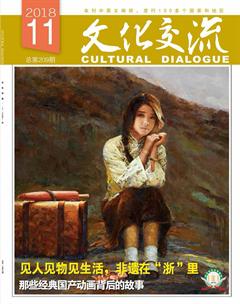中年“慫”,其實是一種和解
陳曼冬
讀新書《我們復婚吧》有感——
今年下半年,關于“中國式壓力”的討論一度登上了網絡熱搜。尤其是演員姚晨在節目《星空演講》中訴說當下的中年尷尬,“兼顧事業與家庭,失敗是常態,成功是偶發”引發聲援與吐槽齊飛。
在這樣的背景下,一本新書《我們復婚吧》悄然登上書架,作者名叫徐瀾。作為記者、作家、出版人、妻子、母親,徐瀾的多重身份,讓她游刃有余地用文字“高仿現實”,直擊內心。
徐瀾也是筆者杭州二中的師姐。讀書的時候,她是榜樣,以及傳說中的“別人家的孩子”。然而,我們卻是在人到中年后才第一次見面。后來,間或在微信上互動,不算頻繁,基本上都是點到即止。再后來,她說要寄一本她的新書《我們復婚吧》。書到手,拆開,是溫柔的粉。封面上是兩枚交疊的戒指。
這幾年,開始無法遏制地喜歡起年輕時候從未入過眼的粉紅色,后來筆者才知道這便是典型的“中年少女”的癥狀。這粉色的封面,便如同一把溫柔的利器,有著來歷不明的力量,一下下抓撓,爽利,以至于輕微的疼痛。這種猝不及防的點穴般的真實感,讓每一個打開這本書的人,不由自主地對號入座。
中國社科院公布過這樣一組數據:2017年上半年,全國有558萬對新婚夫婦,同時有185萬對離婚;與前一年相比,離婚率同比增長10.3%,而結婚率同比下降7.5%。越來越多的女性選擇不婚,也有越來越多的女性結了又離。前幾天,也剛流行過一句話——“離婚的最根本原因是因為結婚”。
離婚也好,復婚也罷,都不過是人生的一種狀態,沒有哪一種狀態要優于另外一種。當婚姻不開心,承載不了自己的期望時,很多人就會選擇離開。在婚姻圍城里的中年女性,偶爾能過上“偽單身”的日子,便是樂顛顛地在心里叫囂“老娘如果離婚了肯定過得活色生香”。所以,乍一看到這題目便認為是與現實高度沖突的小說,在心里翻了個白眼說,“傻瓜才復婚”。在收拾國慶小長假旅行行李的時候,筆者卻還是鬼使神差地放進了這本書。而接下來的日子,便是對這本書的欲罷不能。
這是徐瀾出的“時間與愛”系列三部曲的第二部。故事的主人公劉樂樂、楊建兵、顧濤、呂潔、徐寶根……從上世紀90年代大學校園走來,十多年職場拼搏、出國奮斗,凸顯了置于親情中的人倫關系與情愛過程。故事里有時間推進的光影,有年代轉換的喧嘩場景,也有故事中人物隨風變幻的心緒。不同的性格、婚姻、人生軌跡,故事勾勒出大時代背景下小人物20年變遷的命運,從家庭視角出發,記錄時間的回聲、人性的煎熬,凸顯人倫關系與情愛過程。而其中唯一不變的,是變化。
筆者與書中的主人公有著相仿的年紀,都是上世紀90年代進入大學的一代。對于這20年時代的變遷以及內心的成長,卻有著“不識廬山真面目,只緣身在此山中”的迷茫。而這本書,恰好讓我們這一代人可以跳脫出來,盡量清晰地看到自己和這個時代。從這個角度來講,這本書是一面鏡子。
透過呂潔,透過劉樂樂,看到的是我們自己,從一個女孩到一個成熟女性將近20年的成長,看到生活如何曲折心酸,看到生活如何不易,對情感的認知一天比一天深刻。這大約是一種共情。而書中的共情滲透在字里行間、角角落落。小到一道菜的名稱、一個賓館的老式叫法,比方說延齡飯店;大到某一個時代發生的真實事件,比方說中國資本市場那一場最慘烈的股災,比方說至今讓人不愿意相信的馬航空難。徐瀾把虛構作品寫得如同真實發生的故事,讓閱讀者在虛虛實實的空間里進進退退。而究竟是進退自如,還是以進為退或者以退為進,那么便是每個閱讀者的自我觀照了。
作為女性讀者,一直以來的閱讀偏好是愛情小說,自我寫作在很長一段時間內也跳脫不出小女人的情懷。隨著年齡增長,這些年開始不喜歡自己的小女人情懷,而調整起來卻也很難。這本書,卻脫離了小女人的小趣味,寫出了大時代的酸甜況味。
“我們復婚吧”,粗聽似乎是一個帶有強烈理想主義色彩的呼喊,而細細琢磨,卻是實在到不能再實在的一句話,是對現實生活的妥協。
想起徐瀾寄書的一個小細節——
收到書,并沒有如大多數人一般帶有簽名。于是筆者便微信她:“師姐,下次見你要討個簽名。”她回得很快:“我有負擔的,還是看完送人,或者一扔。”
事實上,《我們復婚吧》整個的基調,就如同這個寄書的小細節。“經歷得越多,越能認識到作為個體的渺小,從而尊重規則,敬畏他人。”這是徐瀾發來的一條微信,她把這種狀態稱之為“慫”。她講,“慫”對于她是褒義詞。對于這本書的詮釋,徐瀾用得比較多的一個詞就是“慫”。把“慫”字拆分,看到的是“從心”。遵從的,便是時間過濾后留下的一顆與世無爭又無所畏懼的心罷。
一直以來,筆者對寫長篇的作家都極為佩服,尤其徐瀾這樣非專業作家的媒體人、出版人。一部長篇,基本上是體力活兒。在她的書里有這樣一段話:“寫作本身就是一種反抗,它不能改變世界,但也許可以改變讀它的人。我希望給別人留一條后路……”
“夢想似乎就在前方,我們奮力向前劃,如同逆水行舟,不停地被浪潮推回到往昔歲月。”這是菲茨杰拉德的《了不起的蓋茨比》結尾的一段話,徐瀾姐把它用在了小說的尾聲,將小說的開放式結尾烘托得剛剛好,也將人到中年的況味發酵蒸騰。
Reconciliation through Restored Marriage
By Chen Mandong
In September 2018 I received from Xu Lan a copy of her latest novel titled Lets Remarry. The novel caught my fascination not because the novelist, a few years senior, and I are from the same middle school, but also because life, marriage, love, etc, are hot topics that have caught my concerns in recent years. Just the other day, Yao Chen, a film and television celebrity, talked about her understanding of mid-age life in a television program. She talked about the mid-age crisis, commenting that “taking care of family and career at the same time is an arduous challenge. Failure is a normalcy and success is rare and accidental.”
I did not meet Xu Lan until we were both middle-age persons. We have chatted on social media infrequently. I know she is busy: her identity bespeaks the challenges she faces: she is a journalist, novelist, publisher, wife, and mother, among other roles she plays in her life.
I had no idea why I put novel into the suitcase when I packed for the golden-week holiday in early October. But I did read it during the holiday to see how it addresses social realities. It is known that many middle-aged women get divorced and their attitude toward their failed marriage is something one hears now and then. I devoured the novel.
The novel is the second of a trilogy titled Time and Love. The characters of the novel are the authors contemporaries: they graduated from college in the 1990s and some have worked as white-collar workers and some went abroad to try their luck. Personalities, marriages, life stories are set in the society where great changes have been taking place.
I devoured the novel because I got a new perspective to look at myself through reading about these characters in the same age bracket. I am one of them. The novel gave me an opportunity to examine myself and people and things around me. The well-known social events and familiar details in everyday life come together to weave the foreground and background of the fiction: the stock market catastrophe that wreaked havoc across the world, the plane crash and disappearance, the names and places that are no more. The fiction reads like something real. Whether the reader has the final say on which is fictitious and which is real is open to discussion.
“Lets restore our broken marriage” sounds like willful and idealistic, but it is a pragmatic call for reconciliation with reality and life.
The other day I chatted with Xu Lan on social media and asked if she could sign the copy she gave me. She declined in her quick response: “Signing my name makes me uncomfortable. You can give it away after you read it or just throw it away.”
The undertone of the novel, it seems, is like the details. “The more we know about life, the more we understand individuals and the more we respect rules and care for other people,” said Xu Lan in a WeChat message to me. She describes her attitude as “慫”, a Chinese word that refers to ones resignation and surrender. But in Chinese, the word is composed of two parts: follow the heart. In Xus opinion, the word carries a positive significance: You follow your heart and assume an attitude not to fight a meaningless fight but lead a fearless life.
“Writing a novel is a kind of resistance. It cant change the world, but I hope it may make some change in a reader. I hope my novels present a way out,” commented Xu Lan.

